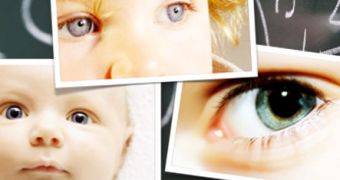On April 9, the scientific journal Proceedings of the Royal Society B witnessed the publication of a new study saying that babies whose mothers are blind more often than not have better visual abilities than those whose parents can both see.
The findings of this investigation into the visual abilities of infants born to blind mothers suggest that, rather than impairing the babies' development, parents affected by blindness actually encourage them to better process the visual cues they receive from the outside world.
Since the development problems of both children suffering from autism and those who grow up in orphanages are associated with little eye contact, the researchers wished to see whether or not a parent's inability to respond to gazes because of blindness negatively affects a baby.
However, several tests carried out on a total of 56 babies led them to the conclusion that infants raised by a blind mother and a sighted or partially-sighted father have better visual attention and visual memory skills.
The babies' visual abilities were evaluated on three separated occasions: at 6–10, 12–15 and 24–47 months.
The researchers suspect that this is because, unlike babies born to seeing parents, infants who have at least one blind parent are left with no choice except constantly alternate communicating with their blind parent by means of sound and making head and tail of the world around them with the help of visual cues.
“Infants with blind parents did not show an overall decrease in eye contact or gaze following when they observed sighted adults on video or in live interactions, nor did they show any autistic-like behaviors,” the researchers wrote in the abstract to their paper.
“However, they directed their own eye gaze somewhat less frequently towards their blind mothers and also showed improved performance in visual memory and attention at younger ages,” they further explained.

 14 DAY TRIAL //
14 DAY TRIAL //